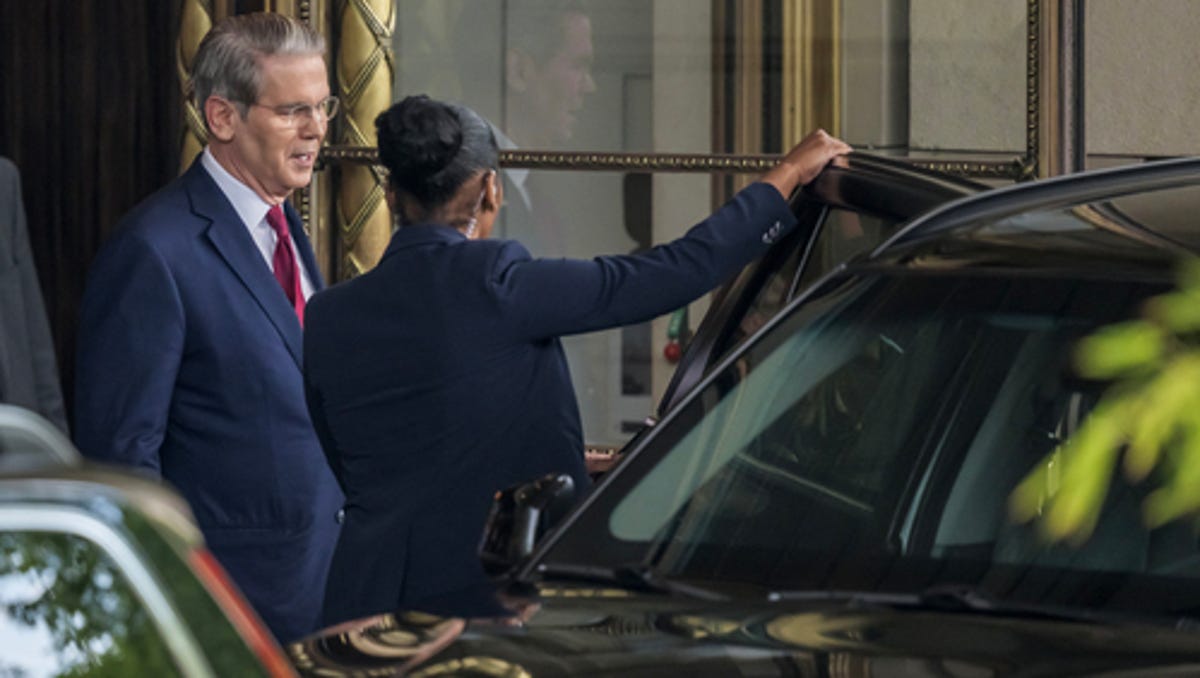Trump suggests lowering tariffs on China to 80% ahead of trade talks
In a social media post, President Donald Trump suggested lowering tariffs on China from 145% to 80% ahead of trade negotiations.
WASHINGTON – President Donald Trump said “great progress” was made on day one of his team’s high-stakes trade negotiations with China, describing the discussions as “a total reset” and saying the two sides agreed on many issues.
Trump’s comments came after Treasury Secretary Scott Bessent and U.S. Trade Representative Jamieson Greer met May 10 with their Chinese counterparts for about eight hours in Geneva to try to secure a trade deal between the two superpowers.
It marked the first meeting between top leaders of the United States and China since Trump’s sweeping 145% tariffs on Chinese imports ignited a trade war between the world’s two largest economies. China responded to Trump’s tariffs with 125% retaliatory tariffs on U.S. exports.
“A very good meeting today with China, in Switzerland,” Trump said in a post on Truth Social. “Many things discussed, much agreed to. A total reset negotiated in a friendly, but constructive, manner. We want to see, for the good of both China and the U.S., an opening up of China to American business. GREAT PROGRESS MADE!!!”
Trump, who spent the day golfing at the Trump National Golf Club Washington, D.C., in Sterling, Virginia, did not attend the meetings in person.
Heading into the weekend trade negotiations ‒ which will continue with additional meetings on May 11 ‒ Trump signaled a willingness to drop U.S. tariffs on China to 80% from 145%, a level so high that $600 billion in annual trade between the United States and China has come to a virtual halt.
Yet an 80% tariff rate would still be significantly higher than what Trump has imposed on other nations and could lead to significantly higher prices on many goods in the United States.
It was not immediately clear which areas the two sides found agreement on, as Trump claimed.
Chinese Vice Premier He Lifeng, who met with Bessent and Greer, called Trump’s tariffs “illegal and unreasonable” on May 7 and said they were “disrupting the international economic and trade order.”
“If the U.S. says one thing but does another, or even attempts to use negotiations as a pretext to continue coercive and blackmailing tactics, China will never agree, nor will it sacrifice its principles or international fairness and justice to seek any agreement,” Lifeng said before the negotiations got underway.
The location of the talks in Geneva was not made public, but witnesses saw both delegations returning after a lunch break to the gated U.N. ambassador’s villa, which has a private park overlooking Lake Geneva in the leafy suburb of Cologny.
Trump has singled out China, which exported nearly $300 billion more in goods into the U.S. than it imported, as the top offender of a trade imbalance he argues has decimated U.S. manufacturing. Trump has defended his tariffs as key to reviving the manufacturing sector.
Trump on May 8 announced a trade agreement between the United States and United Kingdom, making it the first deal his administration has reached as his administration negotiates with more than 170 countries on trade and tariff policy.
Yet it is unclear whether the deal with Britain ‒ the ninth largest trading partner with the United States – will provide momentum for future trade agreements. The U.S. has a $12 billion trade surplus with Britain, making it an outlier from other countries like China that export significantly more goods to the U.S. than they import.
Contributing: Reuters.
